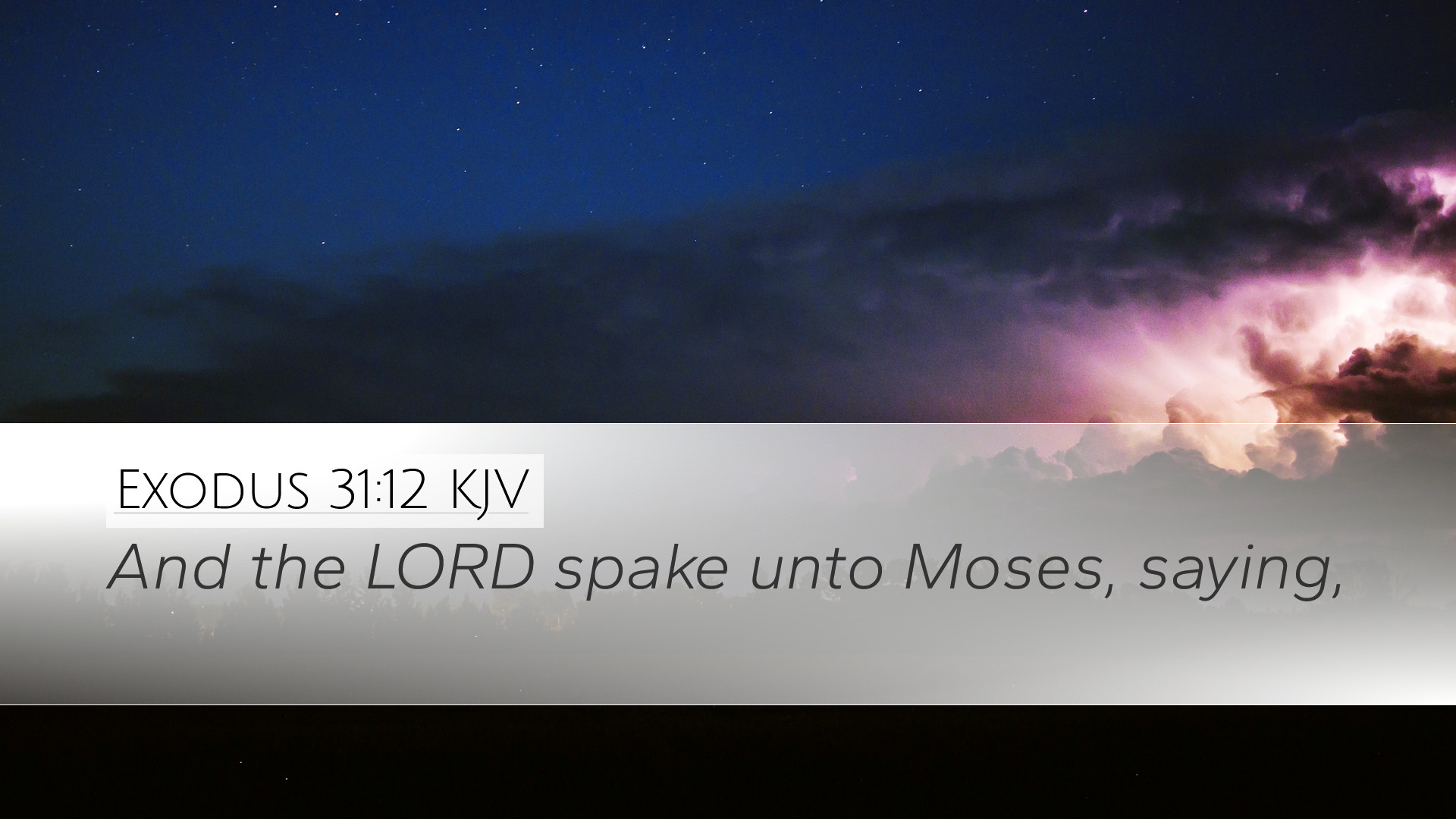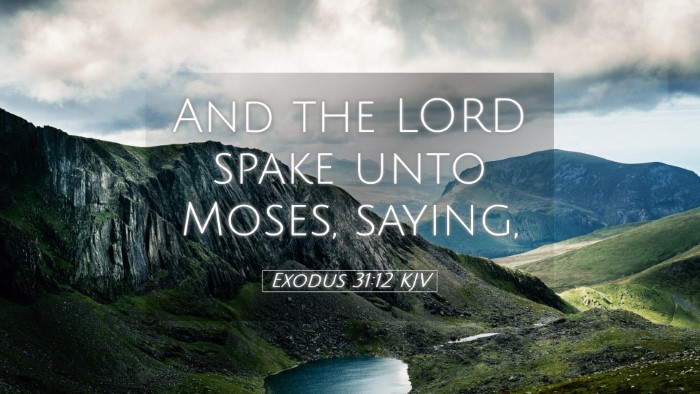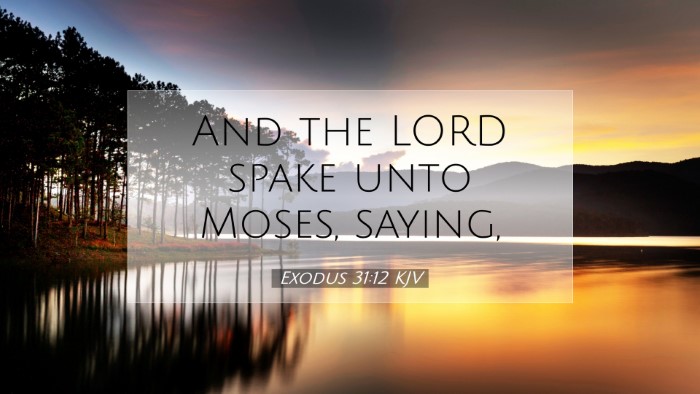Exodus 31:12 - Commentary Summary
Verse: "And the LORD spake unto Moses, saying," (Exodus 31:12, KJV)
Introduction
This verse marks a significant divine communication in the narrative of Exodus, reflecting the ongoing covenantal dialogue between God and His chosen leader, Moses. The context of Exodus chapters 31-34 deals with the instructions for the tabernacle and the establishment of the Sabbath, which not only serves as a mark of the covenant but also emphasizes the importance of rest and devotion to God. In this commentary, we will draw upon insights from the commentaries of Matthew Henry, Albert Barnes, and Adam Clarke to provide a comprehensive understanding of this pivotal verse.
The Importance of Divine Communication
Matthew Henry highlights the significance of God's voice in the lives of believers. The phrase "the LORD spake" indicates the authority and clarity of divine instruction. Henry emphasizes that God's communication is essential for the understanding of His will and the execution of the tasks He sets before His people. This highlights the need for both leaders and congregants to be attuned to divine guidance.
Albert Barnes elaborates on the nature of God’s communication, noting that it is not random or trivial but purposeful and instructional. Barnes posits that God speaking to Moses represents a relationship characterized by dialogue, where the leader is entrusted to relay God’s commands to the people of Israel, thereby establishing a foundation for both law and worship.
Adam Clarke adds a pastoral touch, affirming that such divine encounters serve as motivation for believers to seek God earnestly. Clarke signifies that knowing God speaks to His people fosters both reverence and expectation, encouraging them to align their lives with His expectations.
The Context of Sabbath and Holiness
Understanding Exodus 31:12 necessitates examining its placement in the broader context of divine laws, particularly concerning the Sabbath. This chapter transitions into the importance of rest as ordained by God. Henry emphasizes that the command to observe the Sabbath is not merely a legalistic requirement but a gift meant for human well-being and restoration.
Barnes reiterates that the Sabbath serves as a sign of the covenant between God and Israel. Observing the Sabbath is an acknowledgment of God's creative work and His consequent authority over creation. It positions the Israelites as a holy nation, distinct from surrounding peoples.
Further, Clarke examines the spiritual significance attached to the Sabbath. It is not only a day of rest but also a day that encourages spiritual reflection and communion with God. This aspect enriches the life of faith, leading believers toward deeper relationship with God through worship and contemplation.
Leadership and Responsibility
Moses' response to divine instruction is emblematic of the responsibility held by leaders within the faith community. Henry illustrates Moses as a pivotal figure who embodies obedience to divine commands, showcasing that true leadership is founded on a strong connection to God’s directives.
Barnes notes the heavy burden of responsibility placed upon Moses, indicating that such demands are reflective of God’s expectations from those He chooses to lead His people. The leader must be a conduit of God’s message, exhibiting diligence and faithfulness in the task.
Clarke further expands on the moral obligation of leaders. He notes that faithfulness to God's communication not only impacts their own spiritual journey but also serves as a catalyst for the faith of the community. Leaders must thus be models of obedience and devotion to inspire faith and commitment among their congregations.
Application for Contemporary Believers
In light of the nuances observed in Exodus 31:12, there are several vital applications for modern believers:
- Active Listening: Believers are encouraged to seek God’s voice in their lives actively. Henry’s emphasis on communication underscores the necessity of prayer, scripture reflection, and communal worship as avenues through which God speaks.
- Respect for Divine Command: Recognizing the value of God’s instructions—such as the observance of the Sabbath—fosters an understanding of God’s sovereignty and invites believers to honor His intended rhythms of work and rest.
- Leadership Ethics: Those in positions of leadership are called to uphold their responsibility earnestly. Barnes’ insights remind leaders of the weight of their influence, urging them to remain grounded in God’s Word and exemplify faithfulness.
- Community and Covenant: Like the Israelites, today's believers are called into a covenantal relationship with God. Understanding the significance of the Sabbath, Clarke’s reflections suggest that corporate devotion can enhance the spiritual lives of believers together.
Conclusion
Exodus 31:12 stands as a profound reminder of the significance of God's communication with His people. Through the insights of Matthew Henry, Albert Barnes, and Adam Clarke, we are invited into a deeper understanding of what it means to hear God’s voice and live according to His commands. This verse, particularly in its broader context, calls us to embrace a lifestyle characterized by obedience, reflection, and active engagement with God's covenantal promises.


